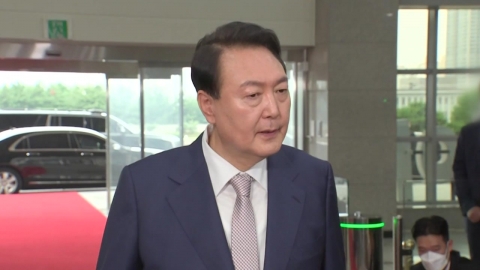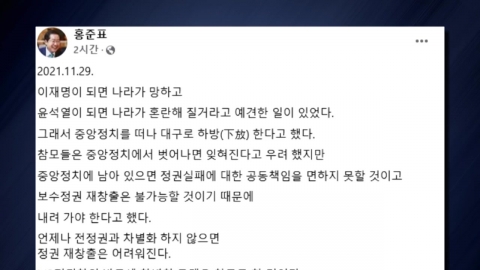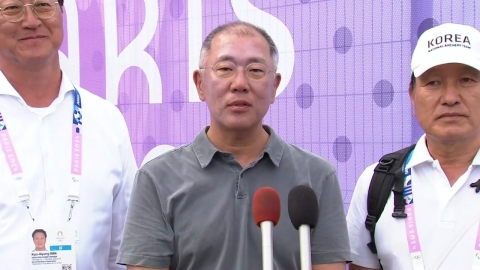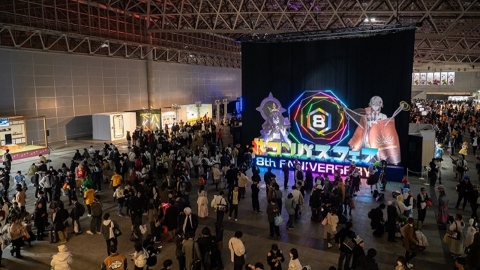■ Starring: commentator Lee Jong-soo
* The text below may differ from the actual broadcast content, so please check the broadcast for more accurate information. Please specify [YTN Newswide] when quoting.
[Anchor]
The won-dollar exchange rate has exceeded the 1450 won level, which was considered a resistance after the emergency. The KOSPI ended the week barely tucking into the 2,400-point range on strong foreign selling. There is also a bleak outlook that the potential growth rate of the basic physical strength of the Korean economy will also fall to the 1% level next year.
Amid criticism that extreme confrontation politics is fueling the Korea discount, the ruling-opposition party's political consultative body for stabilizing people's livelihoods is expected to be activated soon. Let's take a closer look at economic issues with commentator Lee Jong-soo.Please come in. Let's talk about the won-dollar exchange rate first. 1450 won, as you said, was considered a resistance line, but now it rarely comes down after crossing.
[Reporter]
The won-dollar exchange rate surpassed the 1,450 level yesterday, but yesterday it closed this week at 1451.4 won. As you can see from the graphic, it was 1401 won on the 2nd, the day of the declaration of martial law. That's why 50 won soared. It is the first time in 15 years and 9 months that it has surpassed the 1450 level since March 2009, when the financial crisis was in full swing. Isn't there a trade tariff that is predicted to be launched in the second Trump period due to martial law, impeachment, and political turmoil?
On top of that, the U.S. central bank's Federal Reserve said this week that it would slow the rate cut. At the same time, the dollar strengthened and the won plunged. Would you like to hear the remarks about the Fed chairman?
[Jerome Powell / Federal Reserve Chairman: Interest rate adjustments should be prudent. Too much rush or easing of tightening could hamper improving inflation.
[Reporter]
Some predict that the won-dollar exchange rate will surpass the 1,500 won mark early next year. Wouldn't the price of imported raw materials and raw materials go up if the won-dollar exchange rate goes up? As corporate profitability deteriorates, exports of batteries and automobiles are hit, and prices such as food are rising, the wrinkles in our economy, which are already difficult, are bound to deepen.
[Anchor]
The same goes for Powell's remarks. And the exchange rate is not easy for our stock market.
[Reporter]
That's right. The KOSPI was close to 2,500 won last week, but it lost about 100 points this week. At the same time, I barely have a chin-up for 2,400 won. Yesterday, the net selling price of foreigners was 817 billion won. This is the biggest since October 31st.
This week alone, net sales have been made for four consecutive trading days, except for the 18th, and the scale was nearly KRW 2 trillion, or KRW 1.987 trillion. And KOSDAQ also closed this week with the collapse of the 670-point line as foreign orders continued. Major overseas stock markets such as the U.S. and Japan are now on the rise and are now looking forward to Santa Rally ahead of Christmas. Our stock market is in a slump and struggling like this.
[Anchor]
Until a few days ago, there was news that the Nasdaq would surpass 20,000, so domestic stock investors must feel heavy. The Bank of Korea made this prediction that the potential growth rate could be bleak if this situation continues?
[Reporter]
That's right. On the 19th, when our financial market fluctuated, we issued a stern warning. The potential growth rate will fall to the 1% range from next year, and the average will be only 1.8% over the five years until 2029. I diagnosed it like this. If our structural problems don't solve the low birth rate, the aging problem, and the centralization of the metropolitan area that everyone is pointing out, we're going to fall to the 0% range from 2040 as you can see in the graphic.
Potential growth rate is like basic physical strength if you compare it to a person. So, we diagnosed that our economy will become weaker as time goes by. Statistics clearly show that private consumption is declining due to political turmoil caused by the impeachment and martial law. So we have to actively revive the game. To that end, we are urging the National Assembly to draw up an early supplementary budget.
[Anchor]
I think it's important to look at it from abroad, but pessimism about our economy is increasing due to the martial law and impeachment?
[Reporter]
That's right. We are evaluating the restoration of democracy, and such major foreign media reports highlighting political turmoil are continuing. For example, Forbes magazine will pay the price of President Yoon's declaration of martial law in installments. I've said this, but I'm worried that our national credibility, not to mention companies, may fall.
But as you know, aren't great powers in the competition for AI technology, which is a state-of-the-art industry? We're being pushed back here and domestic demand is getting pretty long. As I said earlier, with the launch of Trump's second term, trade tariffs are also on red flags for exports because of this. To make matters worse, political turmoil is highlighted, so there is no reason to invest in the Korean stock market from the perspective of foreign investors. As a result, political confusion, criticism, and criticism that Korean politics encourages the Korea discount are increasing rapidly these days.
[Anchor]
I have a lot of homework to do. First of all, I think we should solve the knots one by one in the political circle. Some point out that politicians are blocking their ears from these points that they should listen to.
[Reporter]
The Pew Research Center, a U.S. pollster, said that Korea is the only country in the world that has a stronger conflict between political parties than the United States. In the case of the New York Times, he also highlighted political polarization, saying that the suspension of his duties following President Yoon's impeachment caused South Korea to lose a strong elected leader to prevent North Korea's provocations and political polarization.
However, political confrontation and polarization, which demonize the other party and drag down everything, are becoming more negative overseas. As we have seen in the martial law crisis and impeachment, did the opposition party cut the New Year's budget alone and deal with it alone? In addition, as early presidential elections are expected, legislative runaway is taking place conscious of populism and votes.
In addition, as the ruling party and the second opposition party are controversial, political circles are showing signs of putting political gains and losses, fighting for leadership, and so on. As a result, the people are angry and looking for alcohol, so the ironic and bitter situation of increasing alcohol consumption is unfolding in reality.
[Anchor]
Still, if we look forward to it, the ruling and opposition party-government consultative body will be in operation soon to stabilize people's livelihoods, so can we look forward to it?
[Reporter]
I don't know. Reporter Lee Junyeop reported earlier.Didn't acting People's Power Representative Kwon Sung-dong say yesterday afternoon that he would accept Chairman Woo Won-sik's proposal for a consultative body between the ruling and opposition parties? At the same time, he emphasized that he would accept Chairman Woo Won-sik's consultative body, not the state affairs stability consultative body of Democratic Party Chairman Lee Jae-myung. This means that even if the consultative body is in operation in the future, the ruling party will not lose its position.
How will this develop? We'll have to wait and see if there's an actual battle for leadership. On the other hand, acting Kwon said he would also participate in the dispatch of a special envoy to the National Assembly, which is being promoted by Chairman Woo. During a meeting with Chey Tae-won, chairman of the Korea Chamber of Commerce and Industry, and other heads of economic organizations on the 16th, Woo also said he would send a special envoy to major countries such as the United States, Japan, China, and the EU under the name of the National Assembly speaker.
What you just said is, can we look forward to it? First of all, there is a sense of delay, but it is certainly welcome that the ruling and opposition parties have decided to put their heads together for the economy, people's livelihoods, and security, but there is still this skepticism among the people. So it's really bipartisan and really urgent to dispel this skepticism and work together with the government. Many disadvantages are expected due to the economic revival and the diplomatic vacuum at the summit, and the people will be watching with eyes to see if they can fill the void.
[Anchor]
A lot of people say that it's the end of the year, but it doesn't feel like the end of the year. As you said, I hope we can solve difficult difficulties together through bipartisan cooperation. So far, we've been with commentator Lee Jong-soo.
※ 'Your report becomes news'
[Kakao Talk] YTN Search and Add Channel
[Phone] 02-398-8585
[Mail] social@ytn.co.kr
[Copyright holder (c) YTN Unauthorized reproduction, redistribution and use of AI data prohibited]
Economy
More- "Export, domestic demand, exchange rate." Triple...Growth in the 0% range after 20 years
- K-UAM in the sky of Goheung...Commercialization Competition Starts
- After the Czech Republic, we won a business order in Romania...K-Nuclear Power Plant Worked Hard on Impeachment
- Restructuring the retail industry...Touching the aftermath of impeachment





![[Y Review] "Bogota" without Woollim...Only Song Joong Ki's transformation and exotic scenery shine.](https://image.ytn.co.kr/general/jpg/2024/1220/202412201628290103_h.jpg)



